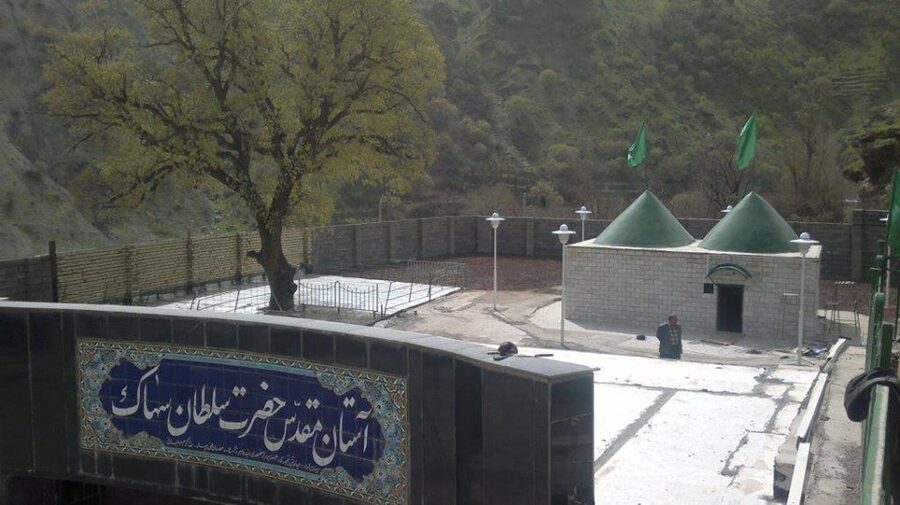"Ahl-Haq" or "Yarsan" are supporters and believers of the "Yari religion". These believers are living mainly in Kurdistan parts of Iran and Iraq and there are some followers of this religion out of the mentioned regions, too. The Yarsan religion is a mysterious religion and its history and origins are not clear. However, the believers and followers of this religion think of it as an eternal religion.
There are a lot of old Kurdish scripts about this religion. The oldest text belongs to the 4th century AD at the time of "Shaxoshin". Historians believe that Shaxoshin or Shaxorshid is the ancestor of the "Al Xorshid" dynasty and the "Shoja'addin Xorshid" clan who pioneered the "Atabakan Lor" dynasty. "Hamdollah Mostowfi" in his book, "Elite's History", wrote: "In Jangruiy, Mohammad and Karaami, sons of Xorshid, visited Shiwaylah and received an official rank. Later they had high born sons like Shoja'addin, son of Xorshid, son of Abubakr, son of Mohammad". "Askandar Baig Torkamen" in his book, "The Great History of Abbasids," wrote: Shoja'addin Xosrshid is from "Haskurd" clan who are known to be well-mannered, just people…"
Shaxorshid is one of the great figures of Yarsan and was known as "Zarda Swar", and "Hazar Swar". And as it is mentioned earlier, some believe that he was Shaxosrshid, the ancestor of Atabakan Lor "Hazar Asp".
The history of some of the temples of this religion goes back to pre-Islam periods, however, the current structure of their temples is made by "Sultan Sahak" in the 8th century of Hijri.
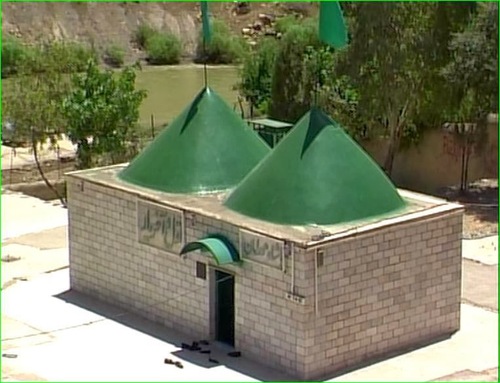
Sultan Sahak or Sultan Eshaq was born in 675 Hijri and died in 798 Hijri. He was also a holy figure in the Yarsan religion. Many people think that he was the first one who pioneered the Yarsan clan. The Yari believers know him as "Sultan Haqiqat" (the king of truth) and "Xawan Karam" (the generosity king) and they consider him as the main figure of Haq (truth). This figure has the highest spiritual rank among the Yarsan followers.
There are many common beliefs and customs among Yarsan believers. However, because the believers of the Yari religion live in a particular geography, some of their customs may differ, and this is found among all religions.
This religion has common points with the "Mithraic", "Manawi", "Jewism", "Christianity" and "Shia" branch of Islam. Despite the common points, Yari is different from Islam.

The Yarsans are known by different titles. Although in the religious scripts, Yarsan and Yari are mentioned mostly, so the followers of this religion are known as "Yar". But in distinct regions, they are known with various titles such as "Ahl Haq", "Kakayi", "Sarli", "Tayafah", "Tayfasan", "Goran", "Qalxani", "Qezlbash", "Niyazi", "Ahli Ser", "Ser Talebi", "Shamloo", "Xajawand", "Ghulat", "Aliollahi", … however, these titles are used for Yarsani followers by non-Yarsanis. Most of these titles point out the followers of the religion rather than the religion itself. Some others have referred to them with hostile names like "Shaytan Parast" (Satan worshipers), "Kalabab Kuj" (Rooster killers), and "Chari Sindern".
In the Azerbaijan part of Iran, the followers of the Yari religion are known as "Goran" and "Shamloo". The Shamloos are those people who were exiled to Azerbaijan from Sham by Amir Teimour and they changed their religion into Yarsani during the Safavid reign. In Azerbaijan they are known as "Qaraqoyonlu" and "Gornlar" which mean 'Watchers' and in Urmia, they are called "Abdal Bani". In Afghanistan and Turkey, the followers of Yari are known as Qezlbash because they took part in the Qezlbash movement in those areas. In Qazvin, they are known as "Kakvand" and in Mazandaran, they are called "Khajevand". Both of these titles are names of two clans not the religion. In Zanjan, the Yarsans are known as "Ser Talbi" which means fan of mystery and secret.
Many people in Iran call the followers of this religion Aliyollahi. Originally, this title was used for a group of them that was added to the previous clans during "Ali ibn Aboutaleb" by "Abdullah son of Saba" and they considered Ali's greatness as high as God's. Due to the belief in Man-God ideology in the Yarsani religion, this title was used for the Yarsanis by the Arabs and Muslims.
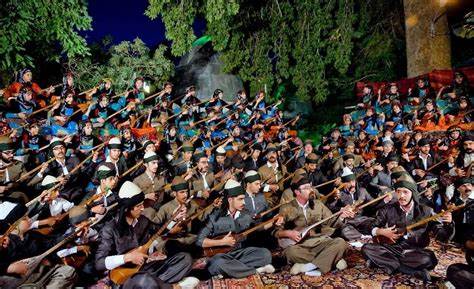
In Iraq, Yarsani followers are called "Sarli". The Sarlis are a group of Yarsanis who live in Mosul and they have moved to Mosul from Sharazour. They were banned from returning to Sharazour by Mosul's ruler and they stayed there by the name of Sarli which means 'what is mine'.
In addition to that, the word "Ahl Haq" which is referred to the supporters of this religion by non-Yarsanis, is actually a word from Sufism and it refers to a person who has passed the ranks of Sharia and Tariqat and has reached the highest level of piety and truth. Ahl Haq is a name that the Sufis have chosen for the Yarsanis and by this name, they want to emphasize that the followers of this religion are in the high ranks of truth. All these names and titles are used for the followers of the Yarsani religion but the original name of this religion is Yarsani or Yari.
There are different ideas and theories among researchers about the Yarsani religion. The historical and ancient religion of Yarsan is from the same roots as the Yazidi religion and they are both distinct from Islam.
"Sadiq Safizadeh," wrote in his book "The Encyclopedia of Famous People in Yarsani" about this: Based on the "Saranjam" Letter, this way of living and belief system was established since the Day of Resurrection. However, the written documents indicate that this religion was founded in the second century of Hijri by "Ballouli Mahi" or Madi. His followers used the belief sources of Zarathustra and Mani religions and some of the Islamic and Christianity and Judaism arguments. However, founding the Yari religion was, in fact, a kind of protest against the Muslim Arabs.
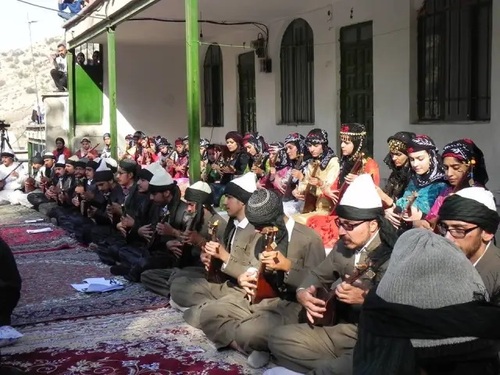
According to the "Great Diwan" of Saranjam Kalam, which is the oldest holy book of Yarsani, this religion existed from the Day of Resurrection and its lessons and knowledge were presented by the Prophet and other great figures. These lessons and knowledge were presented to the followers of this religion gradually until the ninth century A.D., Sultan Sahak presents this eternal secret as a law to his followers. This is why he is known as the pioneer of this religion.
Some of the particular terms used in this religion are Yaran and Haftan.
Yaran refers to the close companions of Sultan Sahak and is divided into these groups: Haftan (The seventh), Haftawanah (the seventh), Hewt kas khawan Qawli Tas (the seven men who owned Tas's Words), Hawt Hawtawan (the seven of seven), Chl Tan (Forty men), Chl Chl Tanan (Forty men), Hafta w du pir (Seventy-two Pir), Nawad Pir Shaho (The ninety Pirs of Shaho), Shast w Shah Gholam Pshtwen Zerin (The sixty-six servants with gold belts), Hazar w Yak Gholam mazn sefat (One thousand and one high ranked servants), Niwe Hazar Gholam (Half of a thousand servants) and Be wan Gholam.
There are seven men who were close companions of Sultan Sahak. They appear as knowledgeable men from time to time to guide people.
They are:
Pir Benyamin, who is as great as Gabriel and is responsible for guiding and redemption. He owns the highest rank of greatness among the Yarsans.
Dawoud, he is as great as Israfil and he is responsible for Nafkh Sour (the Great Horn) in order to awaken the people.
Mir Musa, who is as great as Mikel and is responsible for writing down people's deeds and he writes Sultan's works.
Mustafa Dawoudan, who is high as Azreal and is responsible for rage and death.
Khatoon Dairak known as Khatoo Ramzbar or Rezbar is as high as Houra'ain and she is Sultan's mother. She is also able to pray for Yaran's forgiveness and she is the Greatest lady in the Yarsan women’s community.
Shah Ibrahim, who is a co-worker of Bawa Yadgar represents the Sultan's Kingdom of Piety. They are as great as Iwat.
Bwa Yadgar
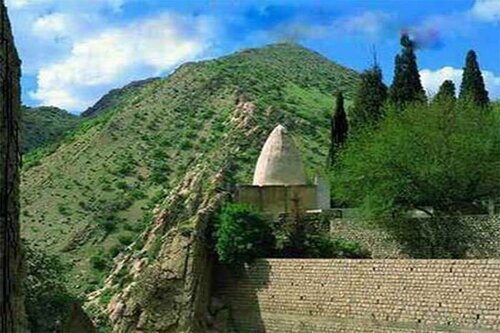
The Shrine of Bwa Yadgar

